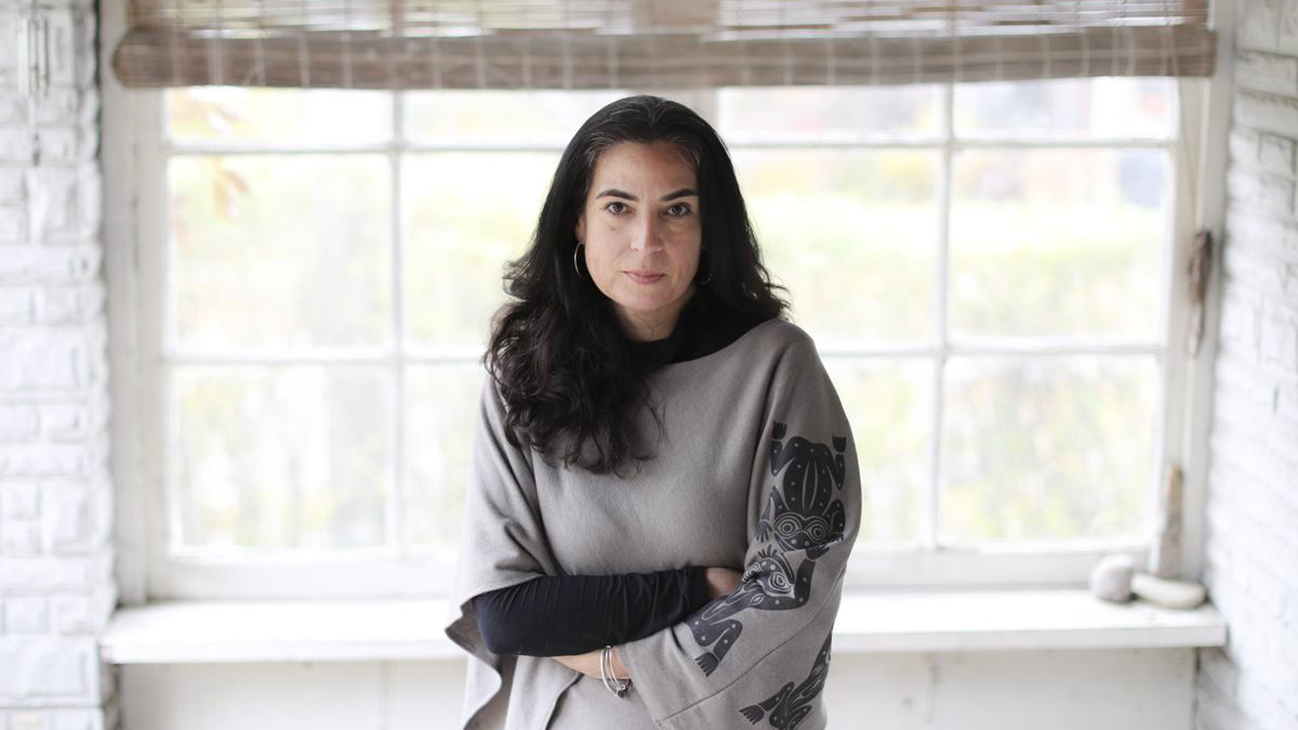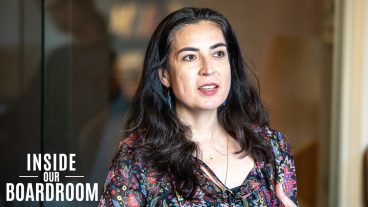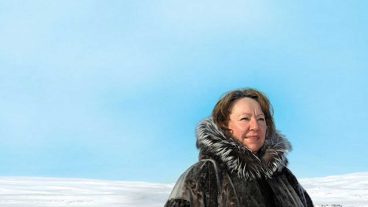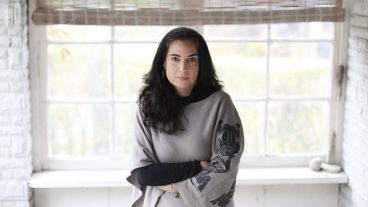Tanya Talaga is an award-winning journalist and author. Through her writing, books, documentary, podcasts, and keynotes, she has become a visionary for Canada’s reconciliation. She uses her gift of storytelling to humanize Canada’s harrowing history with its Indigenous people — the legacy of residential schools and colonization — alongside messages of truth and hope for a more inclusive and equitable future.
Tanya is of Polish and Indigenous descent. Her great-grandmother was a residential school survivor and her great-grandfather was an Ojibwe trapper and labourer. For 20 years, Tanya was a journalist at the Toronto Star, where she spent a decade covering the deaths of seven Indigenous youths in Thunder Bay, Ontario, and the racism behind those deaths. This became the basis of her first book, Seven Fallen Feathers, which won the 2018 RBC Taylor Prize.
Originally sent to Thunder Bay to cover Indigenous voting in the 2011 federal election, she soon learned of 15-year-old Jordan Wabasse from Webequie First Nation, who was found dead in the Kaministiquia River. He was one of seven Indigenous students who had died under mysterious circumstances in Thunder Bay.
Tanya couldn’t understand why there was no media coverage around these deaths. When the then-grand chief of Nishnawbe Aski Nation, Stan Beardy, took her to the river where Jordan’s body was found, she could see Mount McKay — Animikii Wajiw, or Thunder Mountain, in Ojibwe — in the distance, which stands on Fort William First Nation, the community of her maternal grandmother.
“It was like something had hit my stomach,” Tanya told CBC Radio’s As It happens in an interview. “We have a deep connection to land and to place and to water, and being there and knowing that this is where the searchers from Cat Lake believe that he had last been seen, it was just this overpowering feeling of: I have to write this story, you know. We have to tell the story. We have to scream this story from the rooftops and we have to tell people what’s happening here.”
In May 2021, Tanya released the documentary Spirit to Soar, as a follow-up to her book. Along with exploring her own Indigenous roots, she interviews the victims’ family members, local Indigenous leaders, and other students who, like the victims, have to travel hundreds of kilometres to attend high school in Thunder Bay.
Tanya told As It Happens, “I wanted to really focus the film on the bravery of the kids, the bravery of the youth.”
“Imagine what it’s like at 13, 14, 15 to travel from a community that’s 400, 500, 600 kilometres away. And you come in to town and you’re alone and you’re walking down the street and someone calls you a name, tells you to go back to where you’re from. The ultimate irony being, well, this is actually Indigenous land. This is where we’re from.”
Through this film, she hopes to help make Canada a better, safer place for all children. That begins, Tanya said to CBC, with people acknowledging this story and all stories that exist because of the devastating effects of colonization. There is no future until all Canadians stop pretending these stories don’t exist.
More recently, Tanya joined CTV’s The Social, to discuss the toppling of the statue of Egerton Ryerson at Ryerson University. Egerton was one of the key architects of the Canadian Indian Residential School system, and she believes that Ryerson should rename itself. This interview came after she had travelled to Kamloops following the discovery of 215 Indigenous children buried at the Kamloops residential school.
Below is a clip where Tanya says “it’s about time” that Canada looks at how they want to be represented and who they are choosing to represent them. See the full clip here.
“It’s about time.” @TanyaTalaga tells us about her visit to the Kamloops residential school, and her thoughts when she saw the Egerton Ryerson statue in Toronto being pulled down.
Watch the full conversation: https://t.co/3cATcn6Ri0 pic.twitter.com/wkmfPmL3nj
— The Social (@TheSocialCTV) June 9, 2021
Hear more from Tanya on her new podcast “Seven Truths” with Audible based on the Seven Grandfather Teachings that guide Anishinaabe life — humility, love, honesty, bravery, respect, wisdom, and truth. Each episode features people from communities in the north and explores their lives.
Tanya is also the author of All Our Relations: Finding the Path Forward, which captures the lectures she gave as part of the CBC Massey Lectures and is a powerful call for action, justice, and a better, more equitable world for all Indigenous Peoples.
Interested in learning more about Tanya and what she can bring to your next event? Email us at [email protected].




